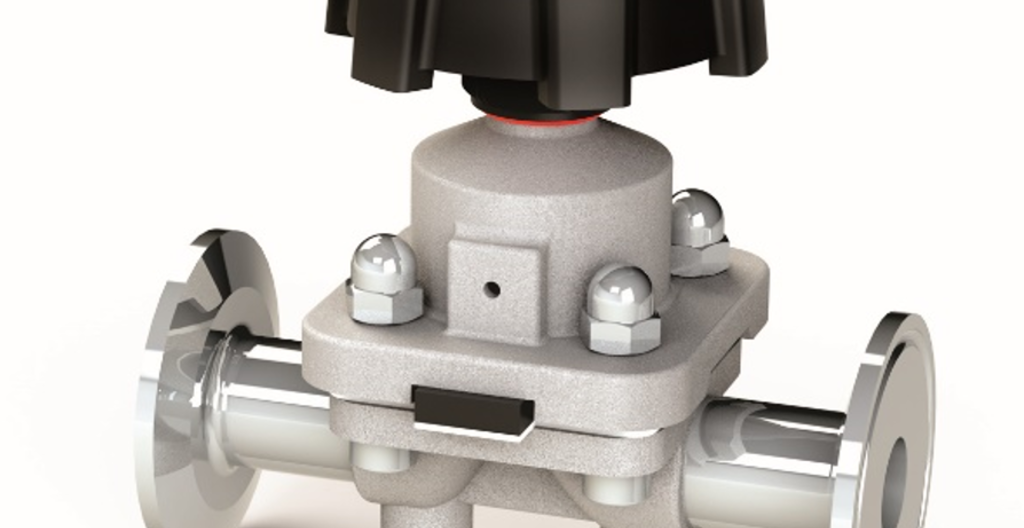
Case studies
- Environment
- Challenge
- Solution
- Benefits
- Specifications
Chemical Weir-Type Diaphragm Valves
Environment
Aseptic and chemical valves are critical parts in medical, food processing, biopharmaceutical and cleaning processes. When purity and chemical robustness counts, weir-type valve diaphragms (or membrane valves) are the logical choice. They offer secure and leakage-free operations as well as handle dangerous and corrosive liquid or gas.
Challenge
The diaphragm is the central sealing element in the valve. Only the diaphragm and valve body are in direct contact with the flowing medium. The design of the basic weir-style diaphragm valve seal presents a number of issues for process engineers working in the biotechnology and pharmaceutical industry. In typical configurations, a weir in the valve body rises in a fluid path and when the valve is closed, the diaphragm meets the weir to shut off the flow. While a simple technology intended to reduce turbulence and shear, weir-style valves present a number of issues, for example in upstream processing applications they can be difficult to install, prone to leaks, and increase the potential of product contamination.


Solution
With our custom valve diaphragm solution, our customers receive long valve switch cycles under tough temperature & media conditions. The solution has received several quality certifications: USP Class VI, European Regulation 1935/2004 and 10/2011, and 3-A Sanitary Standard 20-25. By conducting various tests in house and at customer sites, our solution is proven to provide lifetime confidence, notably for clean room production. Special processes are available on request such as a concave/convex design that provides better flex behavior within the valve.
When purity and chemical robustness count, weir-type valve diaphragms (or membrane valves) are the logical choice.
When purity and chemical robustness count, weir-type valve diaphragms (or membrane valves) are the logical choice.
Benefits
-
Abrasion resistant
-
Offers low friction and wear
-
Broad media and temperature range
-
Clean sealing surface
Specifications
|
Solution |
|
|
Area |
|
|
Material |
|
|
Precision Part |
|
|
Technical Details |
|